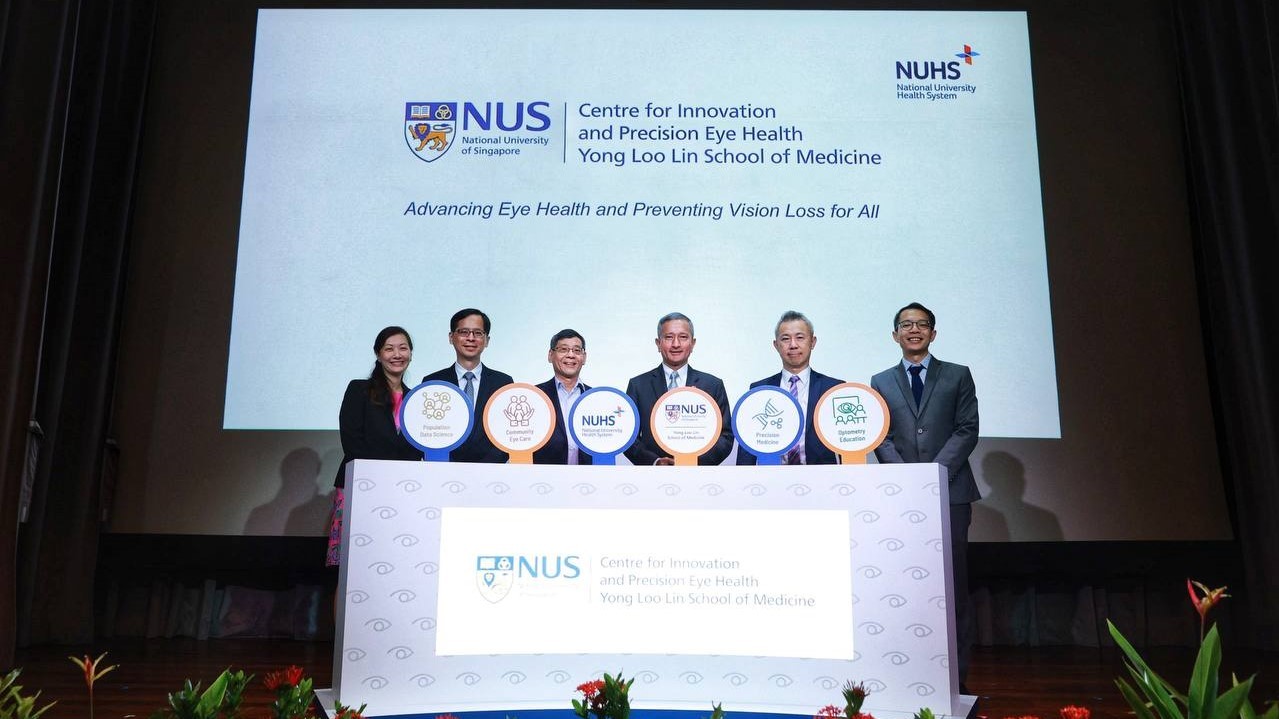New centre to improve eye health of Singaporeans
Making diagnosis and treatment of eye diseases more accessible and affordable – this is one of the key goals of the new Centre for Innovation and Precision Eye Health, which is jointly established by the NUS Yong Loo Lin School of Medicine and National University Health System. Officially launched by Minister for Foreign Affairs Dr Vivian Balakrishnan (fourth from left), who is an ophthalmologist by training, as the Guest-of-Honour, on 25 March 2023, the new Centre aims to promote community-based eye care and the use of artificial intelligence and advanced technologies to better prevent, detect and treat vision problems in the Singapore population.
About 180,000 people above 60 have some kind of visual impairment, and this figure is expected to double by 2030 given Singapore’s rapidly ageing population. These impairments are often undiagnosed as most Singaporeans are unaware of eye diseases, while some patients may also be deterred by the inconvenience of needing a referral from a polyclinic before being assessed by an eye specialist.
“Our goal is to implement and improve ocular health screening in the community, and we want to detect and treat, in a timely way, patients who are not aware that they’re losing their sight, said Professor Cheng Ching-Yu, Director of the Centre for Innovation and Precision Eye Health.
To improve the eye health of Singaporeans, the Centre will draw on large-scale population health metrics and apply state-of-the-art big data analytics together with artificial intelligence to spot disease patterns and trends. This will help doctors and healthcare planners develop cost-effective methods for preventing and treating eye diseases.
The Centre is also working to increase accessibility to community-based eye health care by equipping optometrists in the community with the knowledge and portable eye-screening tools to be the first responders for early detection of eye diseases. Another initiative is to introduce eye-care kiosks at polyclinics, similar to the self-checkout kiosks in supermarkets, to collect data on a patient’s eye health for diagnosis by an off-site ophthalmologist, saving time and cost.

Besides enhancing clinical diagnosis and care, the Centre will also draw on genomic data to further research into precision gene and cell therapy for currently untreatable and blinding retinal degenerative eye diseases, such as age-related macular degeneration (AMD) and inherited retinal dystrophies (IRDs). Every year, around 196 million people worldwide are diagnosed with AMD, and another two million people are affected by IRDs.
As treatments for advanced AMD and IRD are currently very limited, the Centre’s research efforts present a significant opportunity to introduce new gene and cell therapies to patients in Singapore, through partnerships with industry and other research organisations.
Read more here.



